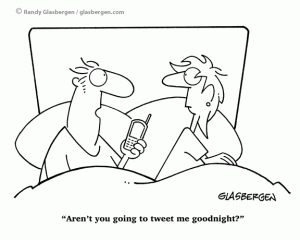As concern mounts about resident sleep schedules and the potential impact on patient care, errors and all other potentially a bad things, studies have begun looking at the impact of sleep on residents. The challenge has been to correlate this with patient-oriented outcomes and this study suffers the same problem. Inadequately powered to assess whether the intervention of providing more sleep to residents would benefit patients.
This study, just published in JAMA took about 100 internal medicine residents and randomized them to either a standard resident schedule which includes 30hr shifts or a protected sleep period (1230-0530). They looked at a whole list of outcomes but the primary one being “sleep time”. The also looked at alertness, numbers of sleepless nights, subjective “sleepiness” and also some patient outcomes likes readmission rates, ICU transfers and length of stay.
Now for the results…
In a shocking twist of events…residents that were randomized to mandated sleep periods actually got more sleep! (vs traditional scheduled residents). I’m not sure why this is a surprise…they were forced to give their work cell phones to someone who would cover for them…I figure this is akin to testing whether an apple is more likely to fall to the ground in a place where gravity exists vs. a zero-gravity zone. What was actually interesting however, those residents with a “protected sleep period” of 5hrs still only got about 3 hours of sleep compared to 2hrs in the other group. Still not great…I can only imagine the size of a study required to show patient oriented outcomes when there’s only 1hr of sleep difference between groups.
In an outcome that was touted highly by the authors, the “mandated sleep” group resulted in residents being more alert the next morning. This was tested using a few fancy tests including sleepiness scales and psychomotor vigiliance (whatever that means!??!)
In conclusion…this study showed feasibility, increased amount of sleep, and more alert residents who got more sleep.
What we need to know however is how this impacts resident learning…did they miss any critical learning opportunities? What if these were surgical residents who would have missed a once-in-a-lifetime surgery? How much does this program cost? And really, we need to find out if patients are served better in such cases…that is the holy grail of this area of study. Another study which doesn’t quite provide us the answers we need.
Ironically I’m writing this at 1am…Anyways here’s the abstract
Effect of a protected sleep period on hours slept during extended overnight in-hospital duty hours among medical interns
Context A 2009 Institute of Medicine report recommended protected sleep periods for medicine trainees on extended overnight shifts, a position reinforced by new Accreditation Council for Graduate Medical Education requirements.
Objective To evaluate the feasibility and consequences of protected sleep periods during extended duty.
Design, Setting, and Participants Randomized controlled trial conducted at the Philadelphia VA Medical Center medical service and Oncology Unit of the Hospital of the University of Pennsylvania (2009-2010). Of the 106 interns and senior medical students who consented, 3 were not scheduled on any study rotations. Among the others, 44 worked at the VA center, 16 at the university hospital, and 43 at both.
Intervention Twelve 4-week blocks were randomly assigned to either a standard intern schedule (extended duty overnight shifts of up to 30 hours; equivalent to 1200 overnight intern shifts at each site), or a protected sleep period (protected time from 12:30 AM to 5:30 AM with handover of work cell phone; equivalent to 1200 overnight intern shifts at each site). Participants were asked to wear wrist actigraphs and complete sleep diaries.
Main Outcome Measures Primary outcome was hours slept during the protected period on extended duty overnight shifts. Secondary outcome measures included hours slept during a 24-hour period (noon to noon) by day of call cycle and Karolinska sleepiness scale.
Results For 98.3% of on-call nights, cell phones were signed out as designed. At the VA center, participants with protected sleep had a mean 2.86 hours (95% CI, 2.57-3.10 hours) of sleep vs 1.98 hours (95% CI, 1.68-2.28 hours) among those who did not have protected hours of sleep (P < .001). At the university hospital, participants with protected sleep had a mean 3.04 hours (95% CI, 2.77-3.45 hours) of sleep vs 2.04 hours (95% CI, 1.79-2.24) among those who did not have protected sleep (P < .001). Participants with protected sleep were significantly less likely to have call nights with no sleep: 5.8% (95% CI, 3.0%-8.5%) vs 18.6% (95% CI, 13.9%-23.2%) at the VA center (P < .001) and 5.9% (95% CI, 3.1%-8.7%) vs 14.2% (95% CI, 9.9%-18.4%) at the university hospital (P = .001). Participants felt less sleepy after on-call nights in the intervention group, with Karolinska sleepiness scale scores of 6.65 (95% CI, 6.35-6.97) vs 7.10 (95% CI, 6.85-7.33; P = .01) at the VA center and 5.91 (95% CI, 5.64-6.16) vs 6.79 (95% CI, 6.57-7.04;P < .001) at the university hospital.
Conclusions For internal medicine services at 2 hospitals, implementation of a protected sleep period while on call resulted in an increase in overnight sleep duration and improved alertness the next morning.

